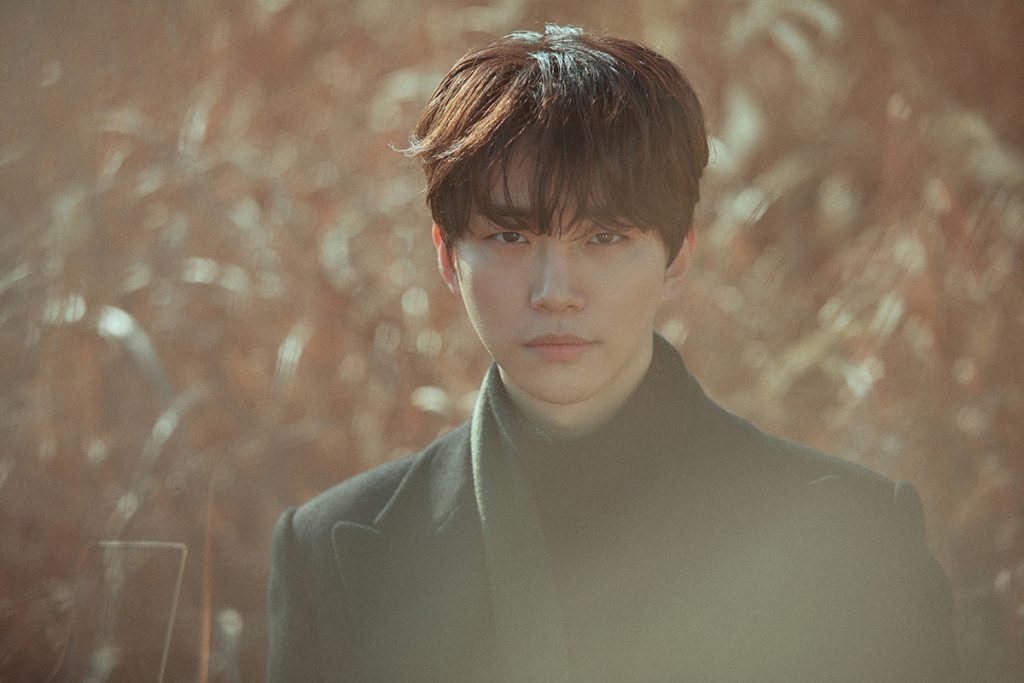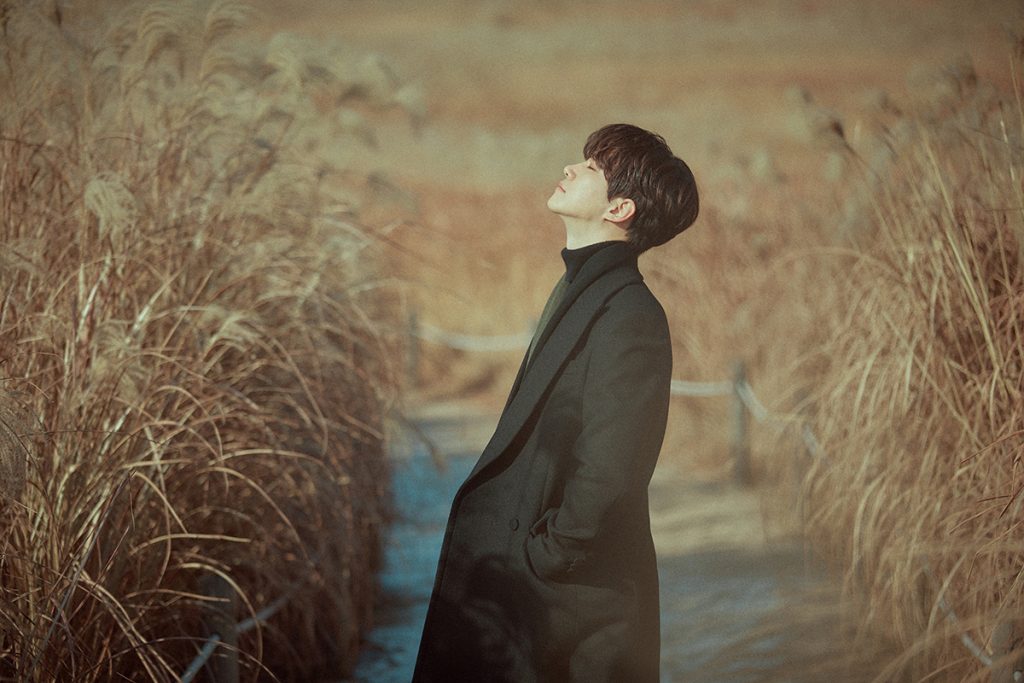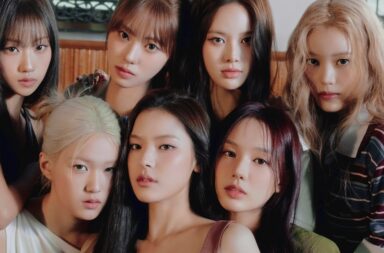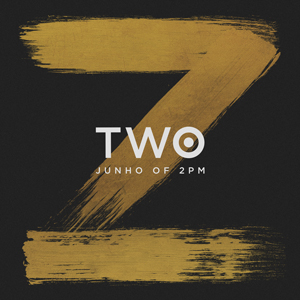
It has been a long time since
Debuting in a dance group, Two reflects the inseparable ties between Junho and his roots as an idol member. The tunes in Two reflects a maturity on the part of the singer, but the tendency towards more rhythmic melodies shows. Nonetheless, Junho manages to demonstrate his versatility in the various styles he adopts in a single album. From retro electronic to pop ballads, Junho shines by tackling all with skill.
Speaking of retro, there seems to be a taste for synth-pop beats these days (think Day6’s “Days Gone By” or Sunmi’s “Siren”). The opening few tracks to Two brings listeners on a ride to the past with their retro melodies. “Flashlight” is a track that runs with the trends, allowing its melody to be driven by a heavy electro-pop style of the early 1980s. Even the lyrics are a little on the cheesy side:
There was no lie
Flashlight ay Flashlight
It is dark now
There is no light
The cliched image painted by the lyrics, paired with the old-fashioned melody, manages to work without sounding over the top. Rather than feeling irked by such cheesiness, the song delivers a far more
On the other hand, the subsequent song “DSMN” takes a different twist on the notion of retro. “DSMN” is similar in terms of incorporating an older sounding synth beat into its melody. However, “DSMN” deviates from “Flashlight” as its seemingly conventional synth-pop intro is intruded upon with verses that sound way too 21st Century. The lines are delivered in style of dance tunes of today, with their swift lines and pounding backbeat. The retro sounding melody becomes a backdrop as electronic beats take over in the chorus.
But that’s not all to the album. Just as you think the entire album is about to rift with such a concept, Junho presents softer pop ballads with “So Sorry” and “Airplane.” And even these two songs take on contrasting tones. Junho picks up on the cold of winter and presents the melancholy of the season with “So Sorry.” This particular track might sound like any other sad love song, narrating the regret of losing a lover. However, it is “So Sorry” that best allows Junho’s vocals to shine.
“So Sorry” begins with a bare melody, focusing on Junho’s voice as he delivers the first few melancholic lines. The song proceeds in an almost formulaic manner: a rap-like first verse, a melodic second verse, and then the song enters into the chorus. Yet, it is in the final lines of the second verse that Junho adds in an R&B
On the other hand, “Airplane” is a sweet romantic dedication. From the song’s outset, the synth sounds kick back in to set up an upbeat melody. Junho’s singing tone takes on a different
Perhaps the song on the album that best suits the weather in South Korea these days would be “Winter Sleep.” The song was first released as a single in 2018, but it awakens the recurrent feelings of pensiveness that comes every winter:
Sometimes I just want to cry, you know
I want to yell or quit
I just don’t feel being myself
I’m only 17 with a lot to dream for
Everything seems to have changed except me
The song is not another love ballad, but a confession on Junho’s own part about his life – a journey that many listeners might be able to connect with on a deeper level. Through “Winter Sleep,” Junho admits wanting to take a break, and many might have felt a similar desire to just hibernate for a moment. The song acts as a comfort for those caught in the laborious routines of everyday life, reminding them that it is alright to step away from it all and rest.
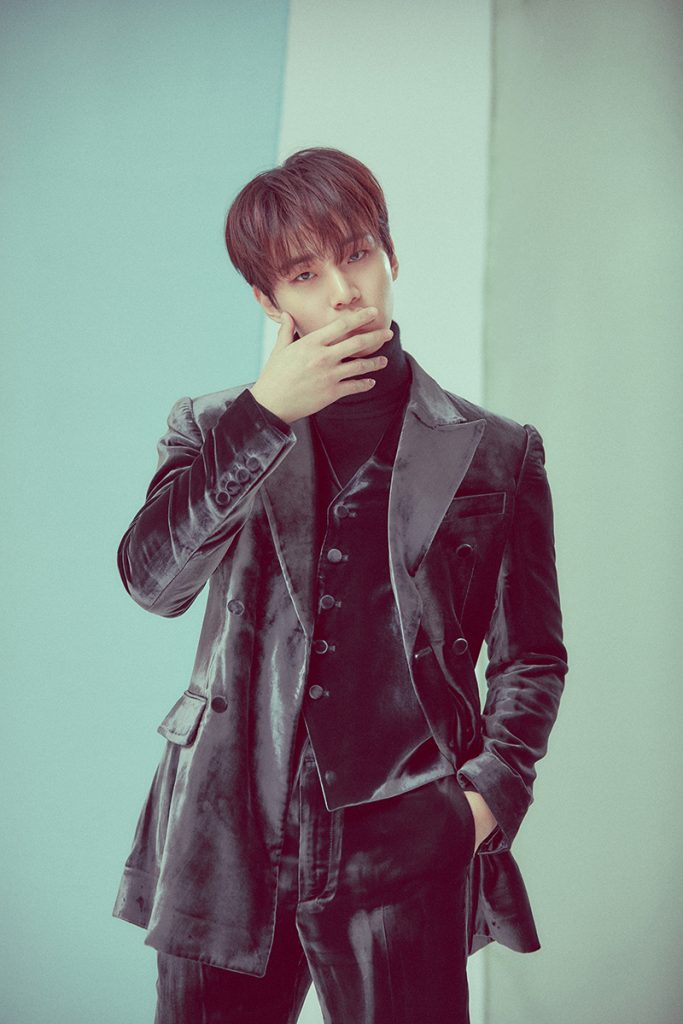
Many of the tracks on Two have previously been released in Junho’s Japanese albums. “On Your Mind,” “Airplane,” “Flashlight” are all Korean remakes, among others. Though it would have been nice to receive new songs, releasing these songs in Korean adds value by showing a certain desire to connect a Korean audience. Promoting on multiple fronts, most considerably to a Japanese and Korean audience, is a feat considering that various markets have differing tastes. Two’s diversity then stands as testament to Junho’s continued appeal as a singer.
Two might not be the most novel or experimental of albums. However, it is still a solidly made one that fans would be delighted to listen to. And perhaps extreme experimentation might not be everyone’s cup of tea. Junho has chosen a safer, but arguably grounded path that spotlights his ability as a singer to cover a spectrum of existing genres. Two represents the solid footing Junho has painstakingly paved for himself. Years have indeed passed for
